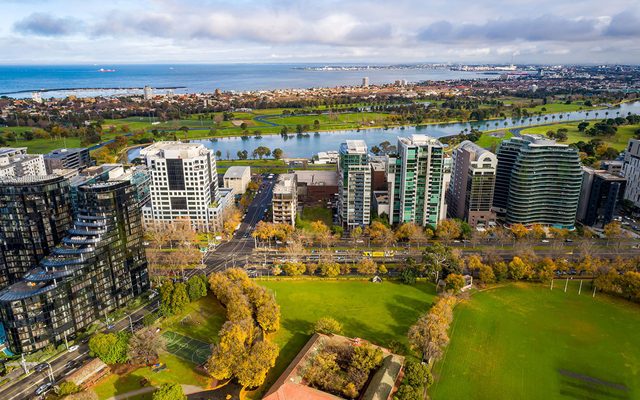This article is from the Australian Property Journal archive
DEVELOPER Tim Gurner and alternative real estate investment manager Qualitas have expanded their GQ Multifamily build-to-rent platform to 3,650 apartments, unveiling new projects in Melbourne’s inner east, South Melbourne and Brisbane.
Australia’s build-to-rent sector has been gaining remarkable momentum of late. This week, Singapore-listed giant CDL has made an entrance into the fast-growing sector down under, while Dutch pension fund APG Asset Management and Bouwinvest have backed a new $1.5 billion Scape Australia Fund. That followed US giant Brookfield has also announced its first project in the country.
The Albanese government has just announced it would halve the withholding tax rate for foreign investors in managed investment trusts from 30% to 15%, a move long-awaited by the sector.
GQ Multifamily now has two sites currently under construction, in Melbourne’s St Kilda and Southbank, with another two to commence construction by the end of this year, in Parramatta and Fitzroy North. Its total number of apartments under construction will increase to over 1,500 during 2023.
Its pipeline also includes 550 apartments within a $1.75 billion project in Docklands that Gurner bought into alongside the wealthy Liberman family last year.
“The scale is critical for cost management, efficiencies and to offer our customers an opportunity to move around Australia while always staying within a GQ Multifamily building,” Gurner said.
“The GQ platform now has a number of key projects either commenced or soon to commence across four major growth markets in Melbourne and Sydney – we’re armed with fresh capital, and we’re always on the lookout for quality acquisitions in these major capital cities.”
Gurner said the platform’s access to capital and shovel-ready sites means it is able to move quickly and rapidly build its portfolio, with the aim to have 5,000 apartments worth $5 billion under management by 2026.
“We are well on the way to achieving this and to exceeding it,” Gurner said.
“The current rental conditions and chronic undersupply of quality housing for our population means the sector is well-placed to service this growing deficit. GQ is ready to deploy all capital at our disposal to deliver this stock to the market.”
Demolition works have kicked off at the Fitzroy North site at 26-56 Queens Parade, with full construction expected to commence in the coming months. The 7,990 sqm site was slated for a build-to-sell project but it was decided that build-to-rent was a stronger long-term play. It will be home to over 600 people when complete.
The project will include a ground floor activation, a residents’ gym, Porte Cochere entrance, car and bike sharing facilities, a business lounge with private dining and co-working space, dog and car wash, and ground floor retail to add to the local area.
GQ Multifamily is aiming to cater for the growing renter market, and will deliver studios, to one-bedroom apartments and up to four-bedroom apartments in the project. Interiors will pay homage to the area’s industrial heritage with ceiling-high, black-framed windows, outdoor spaces with expansive wooden flooring and stone finishes throughout.
“Fitzroy North has long been one of my favourite parts of Melbourne, and it consistently ranks as one of the coolest and most sought-after parts of the city – we think there’s a real opportunity to deliver stock that’s a cut above the rest, particularly as vacancy rate continues to put pressure on the market and the need for greater diversity in housing grows,” Gurner said.
Gurner chief investment officer, Rahul Bharara said that with the proposed changes announced to MIT withholding for foreign investors, the sector should get a boost with improved feasibility across a number of projects and increased diversity of funding partners who were sitting on the sidelines.
Qualitas global head of real estate and co-founder Mark Fischer the government’s announcement would be welcomed as a positive development for the sector, unlocking additional capital and further driving much-needed housing supply.
“We are favourable to the residential sector compared to all others as it is perfectly aligned to investors’ focus on assets generating defensive and resilient cashflows through all economic cycles.”
As pressure mounts on Australia’s housing supply, national dwelling approvals have fallen to their weakest level since 2012.




